Bangkok, Thailand, is known for non-stop energy, from temples that are always be humming to rooftop backpacker bars that seem like they never close. But it’s also known for its vibrant and colorful festivals, which reflect the rich culture and traditions of Thailand. Historically, Thailand has had a monarchy since the 13th century (when it was called Siam) and has been a constitutional monarchy since 1932.
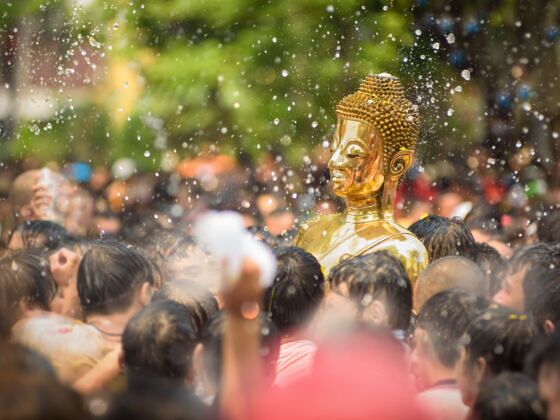

7 of the Best Festivals in Bangkok for an Unforgettable Trip to Thailand
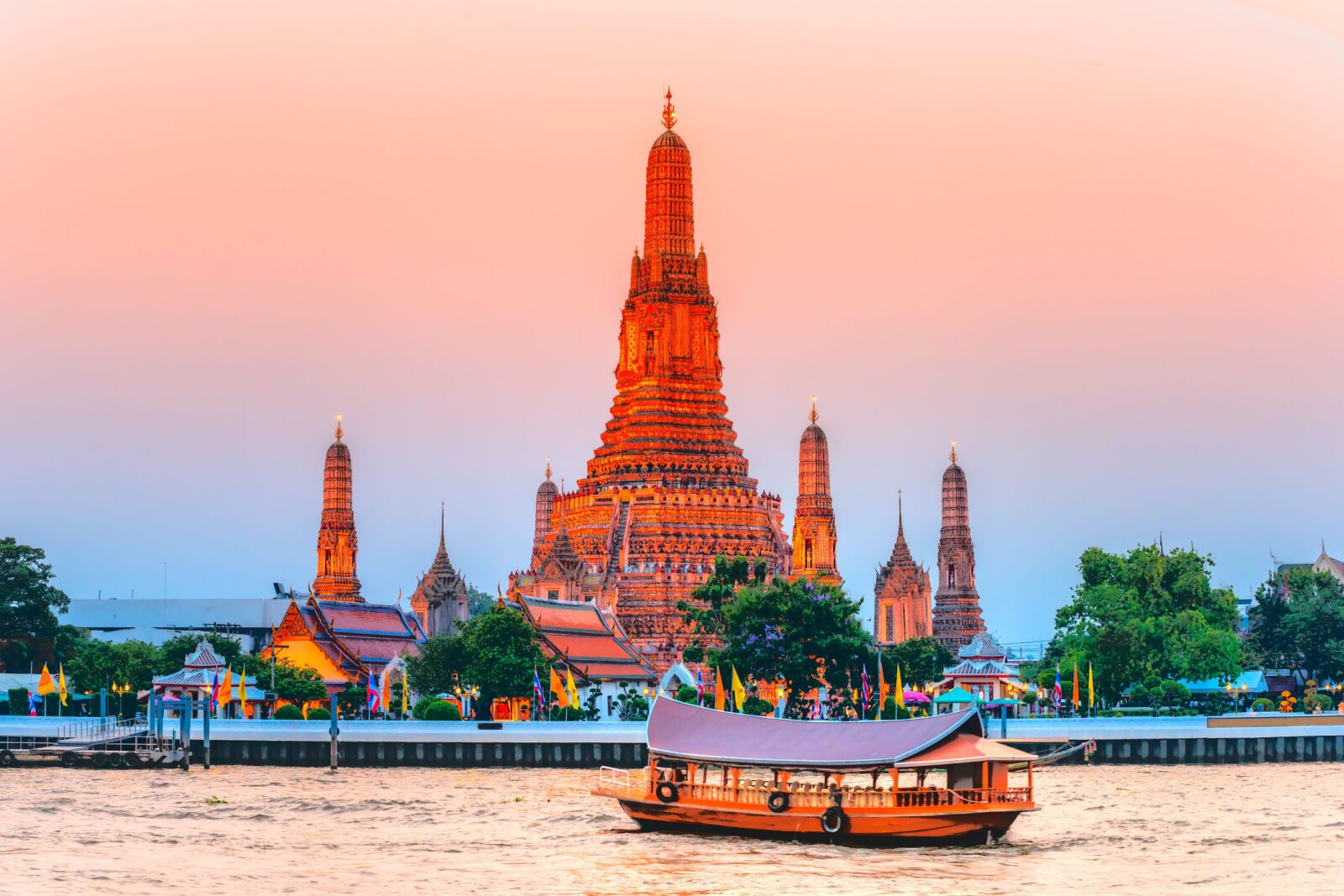
Photo: Luciano Mortula – LGM/Shutterstock
Buddhism plays a central role in Thai culture and is reflected in the country’s many temples and festivals, though Thailand’s culture was shaped over centuries by its strategic location at the crossroads of trade routes between India, China, and Southeast Asia.
That said, today, Bangkok is an international city, and most of the festivals in Thailand are celebrated in a major way in the city. You’ll likely see residents and tourists alike taking part. And there are many festivals to choose from, from the famous Songkran Festival to the lesser-known Chakri Memorial Day. From the traditional to the modern, the festivals are a great chance to experience the diverse culture of the Thai people. Here are seven of the best festivals in Thailand you can celebrate while in Bangkok.
Where are the various festivals in Bangkok?
Most of the best festivals in Thailand are country-wide, but the biggest celebrations are often in Bangkok. In fact, they may be celebrated in multiple places throughout the city. And many of the celebrations and festivals may be both unofficial and not really advertised to tourists online, but that doesn’t mean you can’t attend — it just means you may have to wander a bit to find a celebration.
That said, tourism is big in Bangkok and the Tourism Authority of Thailand has a comprehensive list of festivals and events that take place in Bangkok, as well as information on dates, venues, and other details.
Songkran Festival (Thai New Year)
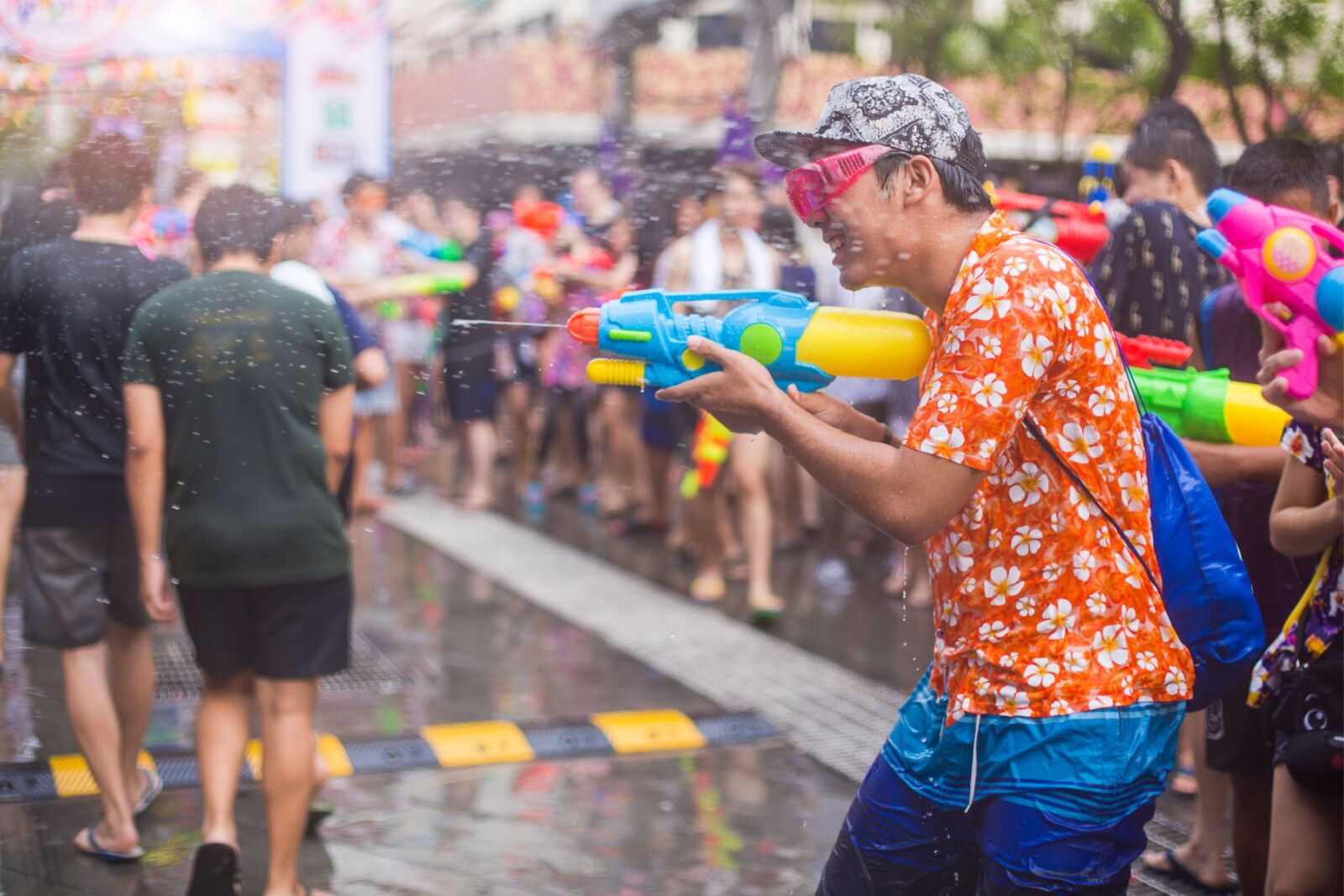
Photo: Worachat/Shutterstock
Songkran Festival, also known as Thai New Year, is celebrated annually in April and is the most famous and widespread festival in Thailand. The festival marks the start of the traditional Thai New Year and is celebrated across the country.
The main event of the festival is the “water splashing” ceremony, where people take to the streets with water guns, buckets, and hoses to douse each other with water. It’s believed that the water splashing ceremony symbolizes the washing away of bad luck and sin and the start of new beginnings.
To participate, visitors can visit local temples, where many people will be making offerings and paying respects to Buddha year-round, but especially during the festival. Many cities and towns, Bangkok included, hold cultural shows and parades during Songkran with traditional Thai music and dance performances.
The main areas in Bangkok where the festival is celebrated include Khao San Road (the popular backpacker area), San Chao Pho Sua (one of the oldest Chinese temples in Bangkok), and Wat Arun (the Temple of Dawn), a Buddhist temple along the Chao Phraya River. Traditionally, you’d pour water over the hands of elders as a sign of respect, but in recent years, the water-throwing aspect of the festival has become more of a playful and lighthearted activity among people of all ages. Still, make sure you’re being respectful and minding others’ personal space and comfort level. Obviously, you shouldn’t douse strangers or anyone who doesn’t want to participate.
Loy Krathong Festival
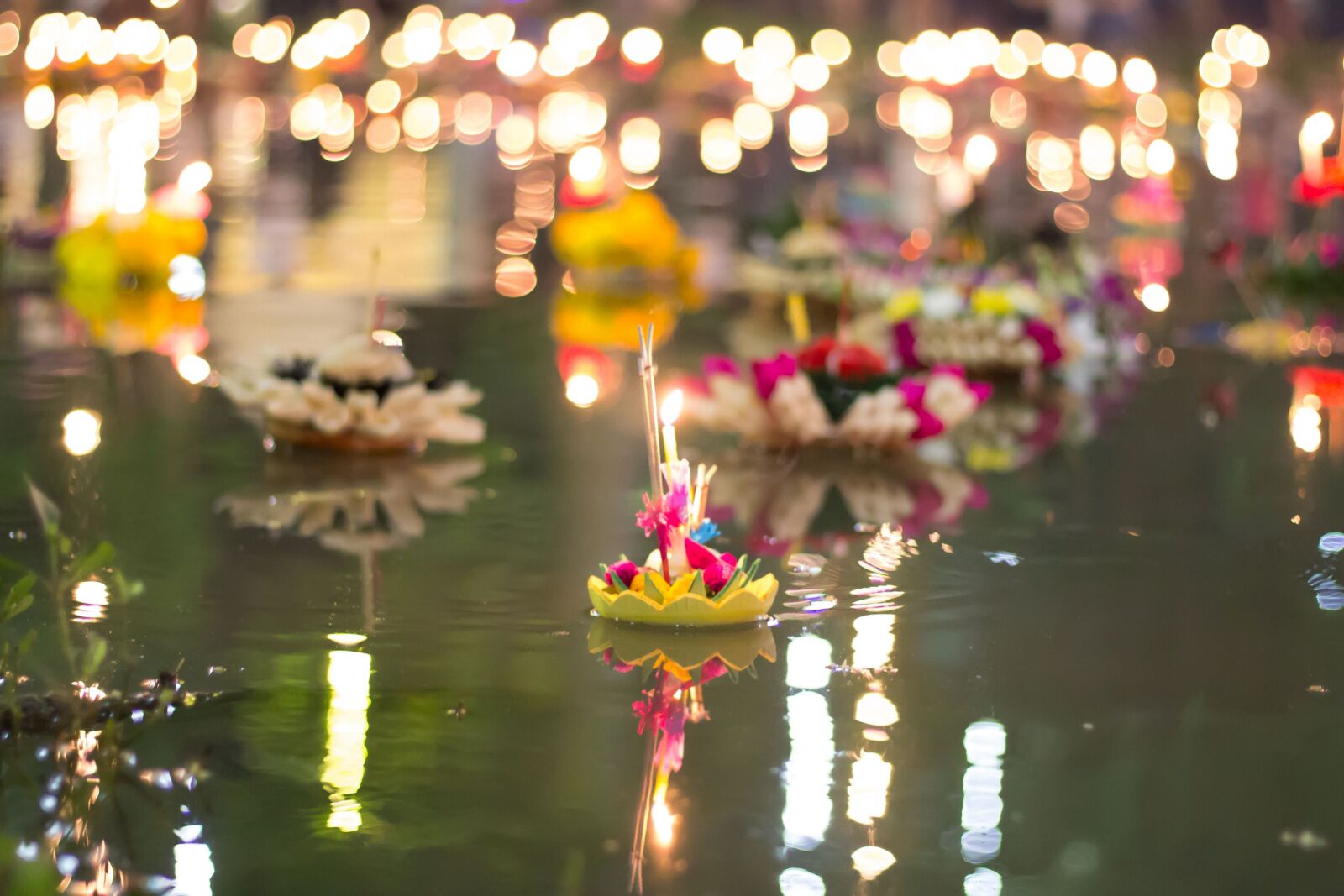
Photo: ArisaraPunyawi/Shutterstock
Loi Krathong Festival, also spelled Loy Krathong, is celebrated annually in November and is also one of the most widely celebrated festivals in Thailand. The focus is on paying respects to the water spirits and expressing gratitude to the River goddess, Phra Mae Kongka.
The main event of the festival is the floating of small lotus-shaped boats, known as “krathongs,” on rivers, canals and other bodies of water. It’s traditional to make a wish while releasing their krathongs into the water. You can buy krathongs at most markets in Bangkok or make your own. The spirit of setting your boat in the water matters more than the quality of your boat, though of course, you want to avoid putting plastics and other harmful materials in the water.
Other ways to participate in the Loy Krathong Festival include attending one of the many parades or ceremonies in Bangkok, most of which include traditional Thai dance performances and mass releases of krathongs into the river canals.
Chinese New Year
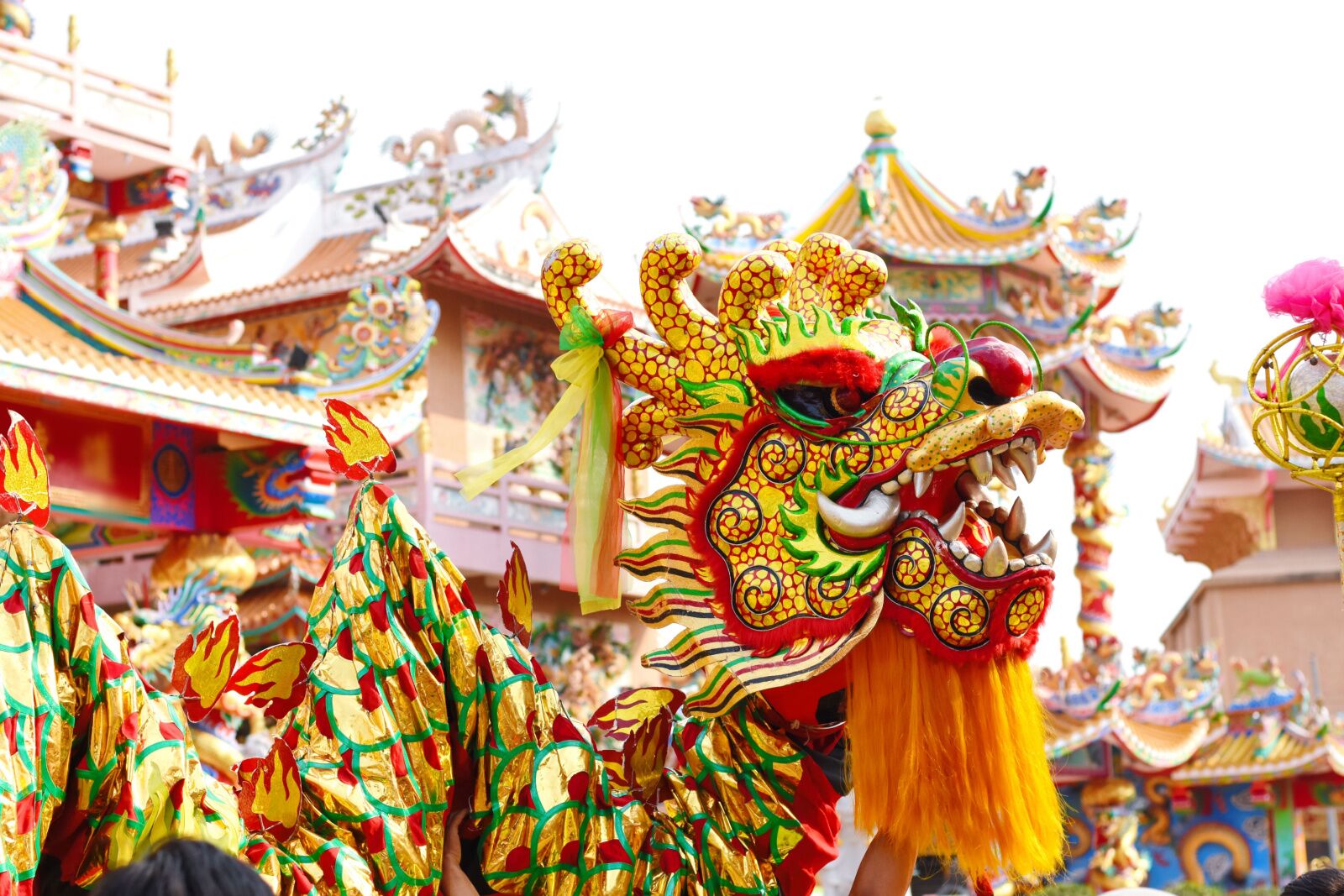
Photo: Richchy/Shutterstock
The Chinese New Year, also known as the Spring Festival, is the most important traditional Chinese holiday in Thailand. It falls on a different date each year, but it’s usually between January and February. The festival is celebrated over 15 days, with the main events taking place on New Year’s Eve and New Year’s Day.
The Chinese New Year festival in Bangkok’s Chinatown is known for its vibrant and colorful parades, featuring lion and dragon dances (which, historically, were to ward off evil spirits), traditional music, and fireworks. The streets are also decorated with lanterns, banners, and other festive decorations.
Tourists can attend the Lion and Dragon Dance performances, which are excellent also for photography buffs as the costumes are colorful, intricate, and complex. Other ways to experience the festival as a visitor include stopping for lunch at one of the many Chinese markets throughout the city, or visiting one of the fairs at many of the city’s Chinese temples, which usually sell art, decorations, traditional food, and souvenirs. You can also just walk through the Chinatown neighborhood to see the decorations, art, and music that go on on a daily basis during the New Year.
Bangkok Mid-Autumn Festival
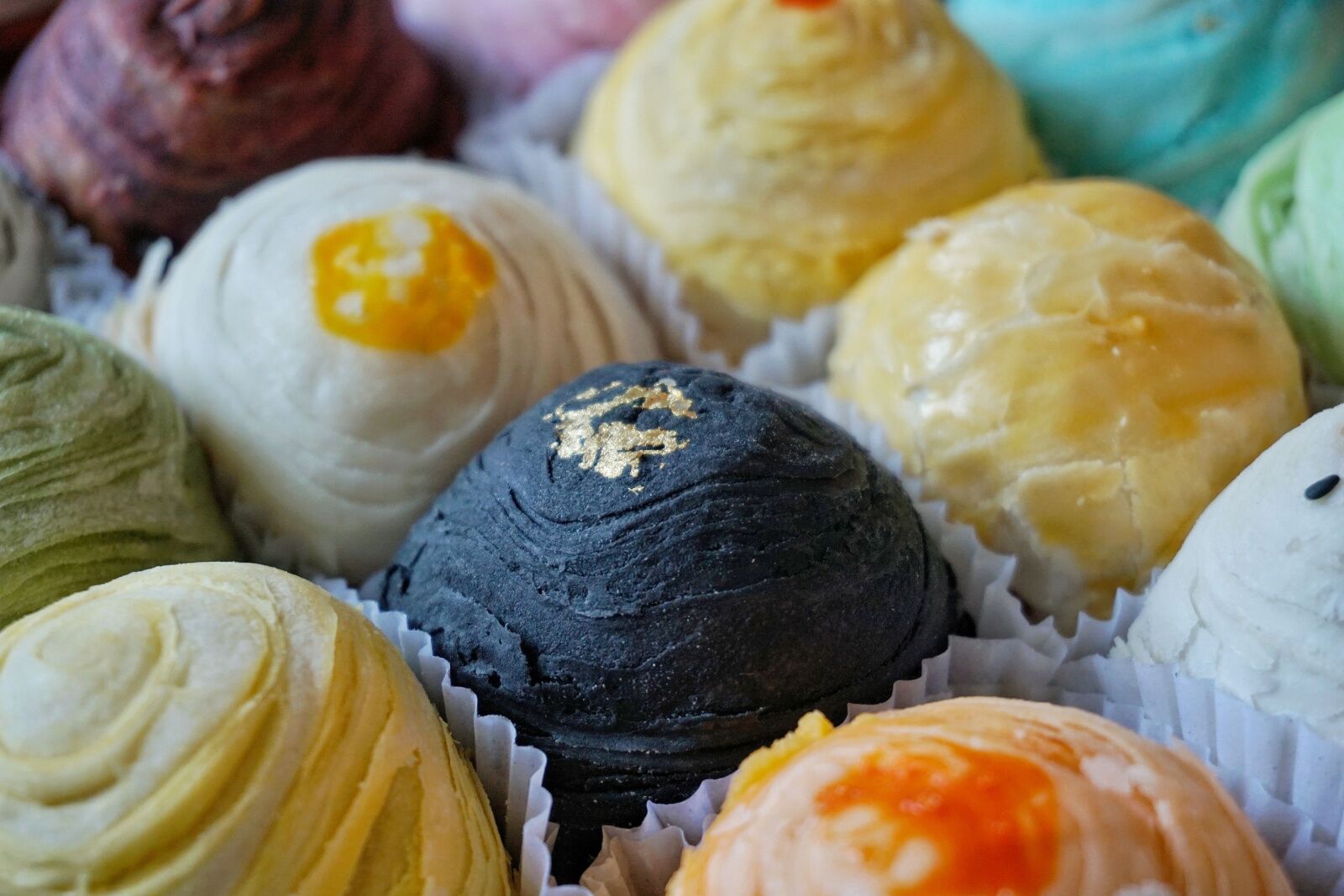
Photo: T.Kaewkun/Shutterstock
The Mid-Autumn Festival, also known as the Moon Festival, is a traditional Chinese festival celebrated annually on the 15th day of the eighth month of the lunar calendar, usually in September or October. The festival is celebrated to mark the end of the harvest season and to give thanks for a (hopefully) bountiful harvest.
The festival traces its origins back to the Zhou Dynasty (1046-256 BCE), when people would make sacrifices to the moon to celebrate the harvest. The festival was also associated with the worship of the moon goddess Chang’e. It was believed that she lived on the moon and her beauty was said to be as bright as the full moon. In China, the festival was officially recognized as a holiday during the Tang Dynasty (618-907 CE).
As Chinese immigrants settled in different parts of the world, they brought the celebration of the Mid-Autumn Festival with them. And today, the festival is celebrated by Chinese communities around the world, including in Bangkok, where there is a large Chinese population.
Visitors in Bangkok can visit the Chinese temple fairs during the celebration. They’re held throughout the city, including the Wat Mangkon Kamalawat temple in Chinatown. These fairs typically feature traditional Chinese performances, such as lion and dragon dances, as well as food stalls selling mooncakes (round cakes traditionally filled with lotus seed paste and a salted duck egg yolk) and other traditional Chinese snacks and classic street foods.
Vegetarian Festival
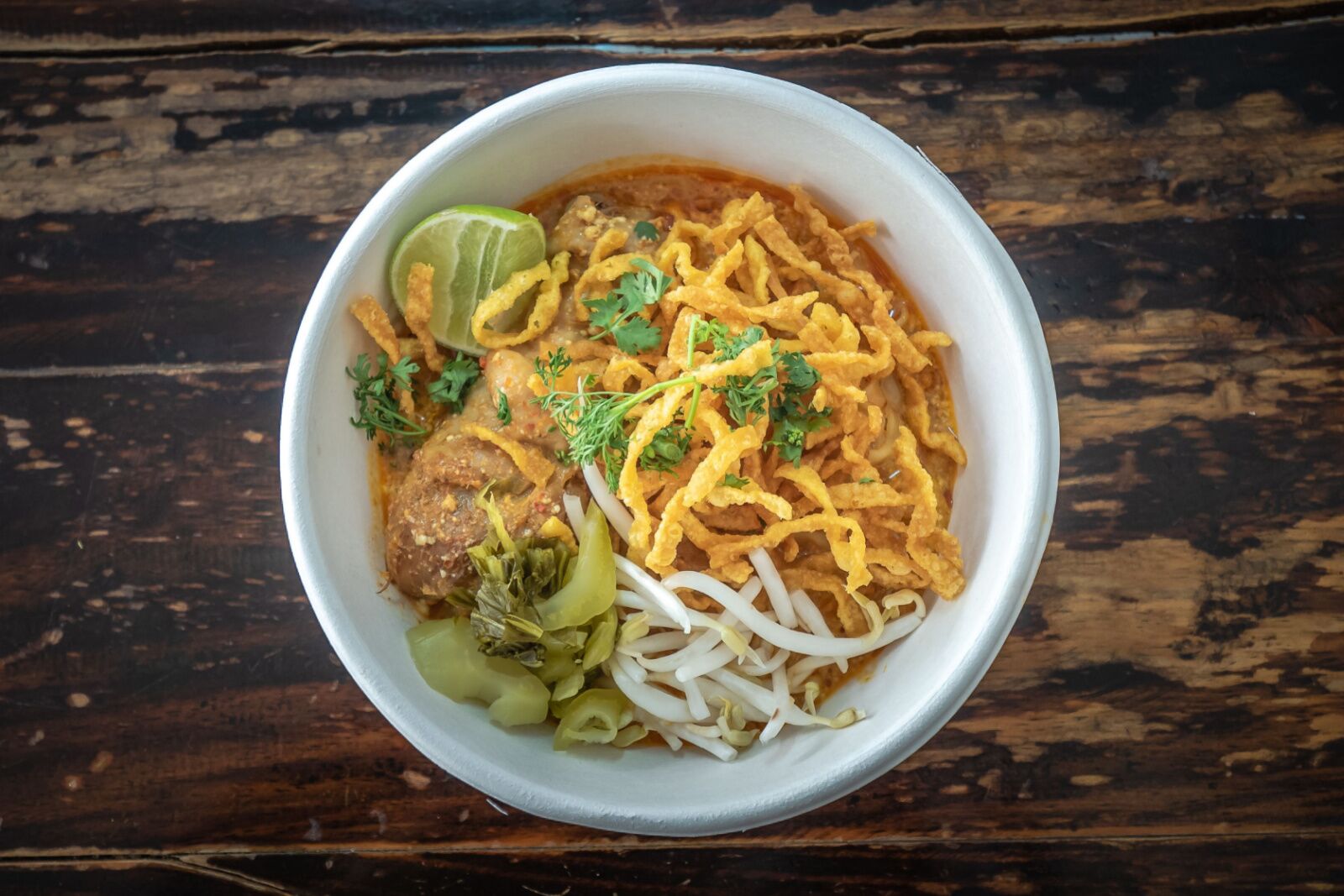
Photo: Robert CHG/Shutterstock
If standard food festivals don’t meet your dietary needs, you’ll be happy to know that Bangkok also hosts a far-reaching Vegetarian Festival, also known as the Nine Emperor Gods Festival, celebrated every October. The festival is a celebration of the Nine Emperor Gods, who are believed to bring peace and prosperity to the community. The festival is also a time for spiritual cleansing and purification, and many people choose to abstain from meat and other animal products as part of that purification process. Throughout Bangkok, there are colorful street festivals, performances, and parades, especially in the Chinatown district.
During the festival, many restaurants, food stalls, and street vendors offer a wide variety of vegetarian options. It’s a great time to lean into the spirit and try following a vegetarian diet for a few days, especially since many restaurants will tout the very best versions of traditional veggie dishes like khao soy (coconut curry noodle soup), green curry, and som tam (papaya salad).
Chakri Memorial Day Festival
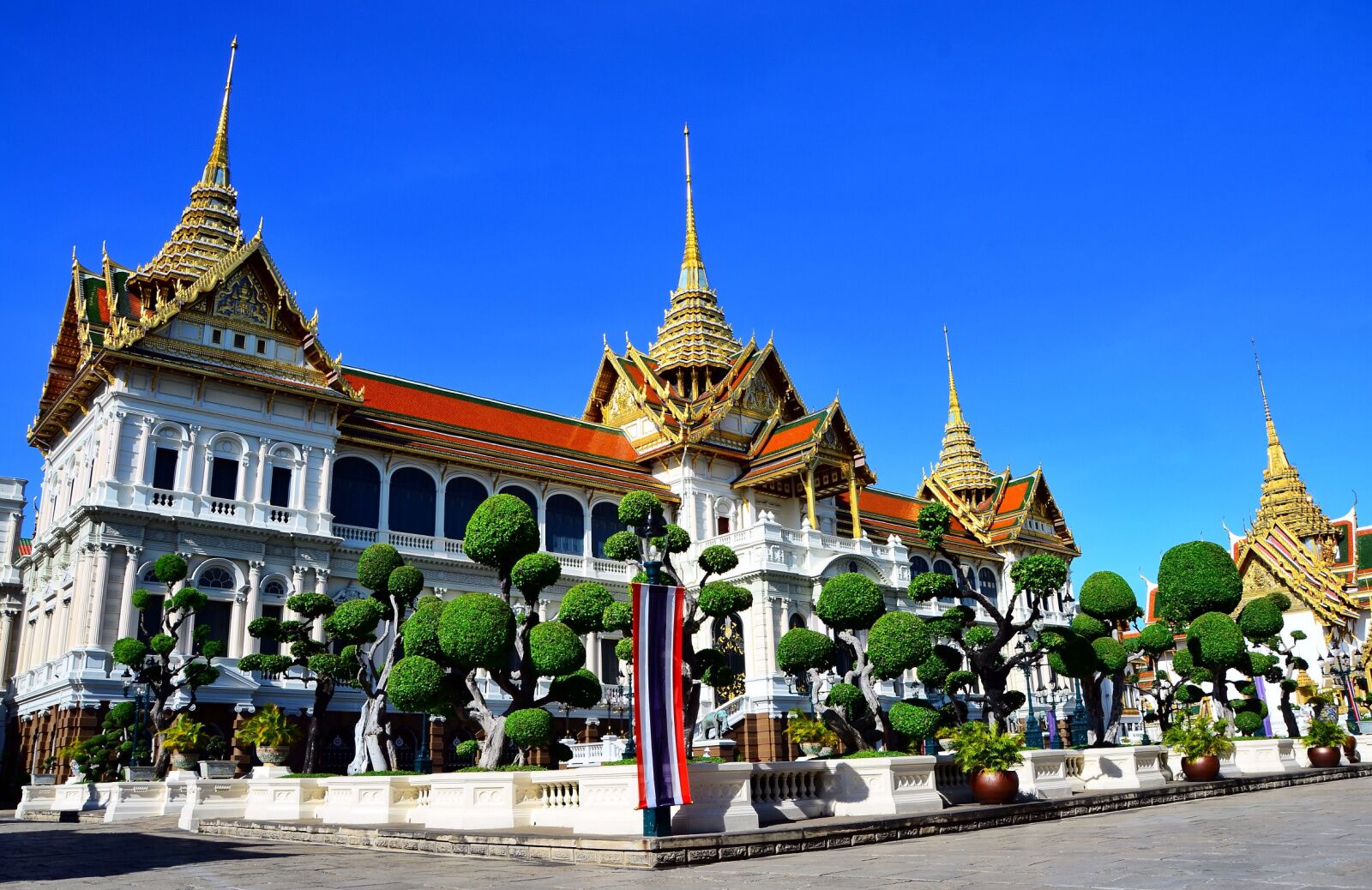
Photo: Aong_siri/Shutterstock
Chakri Memorial Day, also known as Chakri Day, is celebrated annually on April 6 to commemorate the founding of the Chakri Dynasty by King Rama I. It’s a nationwide festival in Thailand, but Bangkok especially has many ceremonies and events honoring the legacy of the Chakri kings. The Chakri Dynasty is the current ruling dynasty of Thailand, in power since 1782. FYI: This is a public holiday in Thailand, so some businesses may be closed or have unusual hours.
This day is celebrated with a variety of activities and events, including:
- Ceremonies and religious rituals: Many Buddhist temples in Bangkok and throughout the country hold special ceremonies and religious rituals to pay homage to the dynasty. Most will be open to anyone, including visitors, but be sure to always be respectful. Stay out of the ceremonies if you just want to take photos.
- Military parades and performances: You’ll find these throughout Bangkok and other major cities on April 6
- Cultural and historical exhibits: Most museums and cultural centers in Bangkok will have special exhibitions and events to showcase both the Chakri Dynasty and Thailand’s history on the whole.
- Cultural performances: Many schools and communities organize cultural performances, traditional dances, and music performances to celebrate the Chakri Memorial Day. You’ll probably stumble on more than a few if you’re walking around town on April 6.
Bangkok International Film Festival
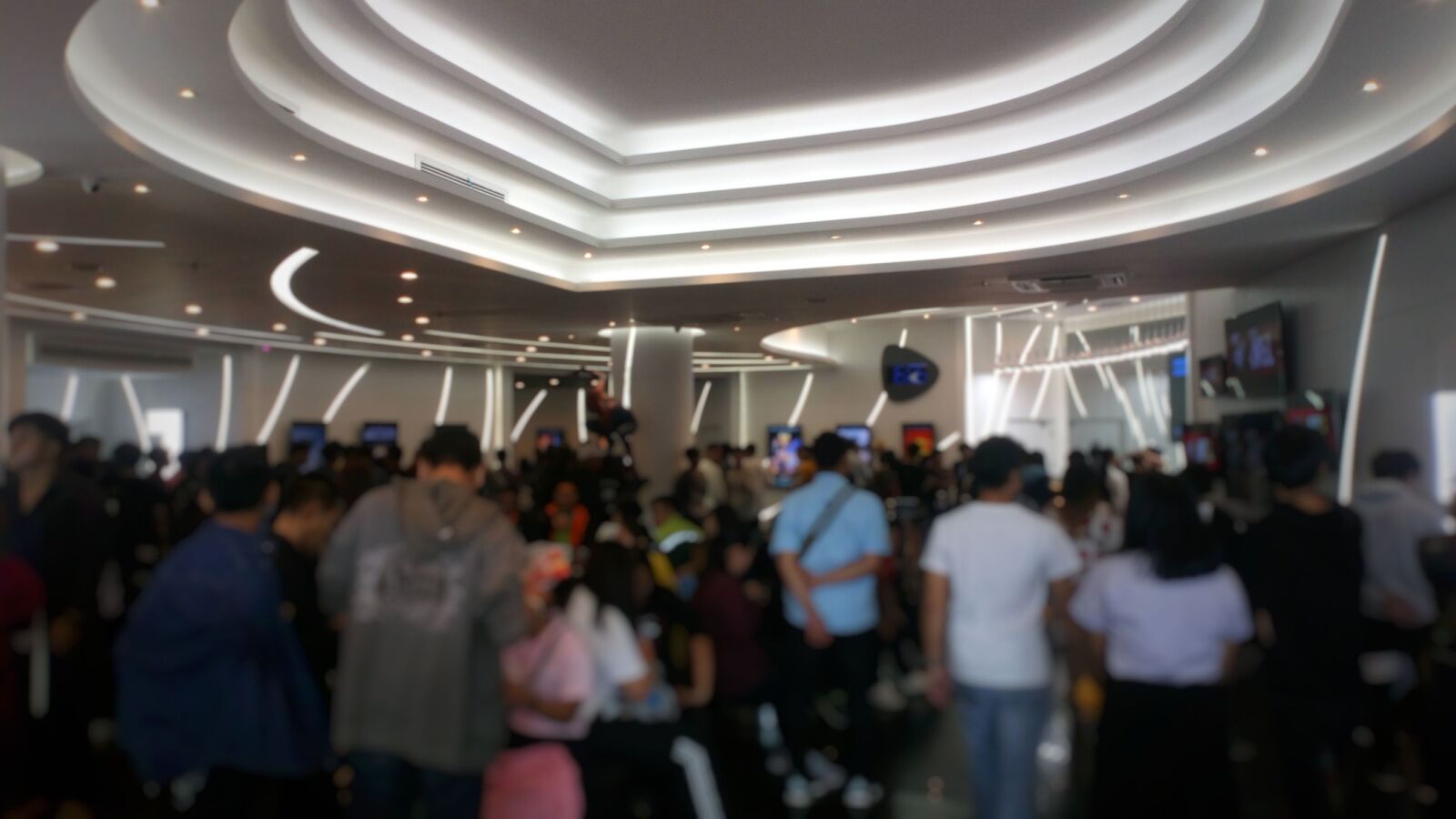
Photo: Duangjit Niljinda/Shutterstock
The Bangkok International Film Festival, also known as BIFF, is an annual event in late September and early October. The festival is one of the most important and widely attended film festivals in Southeast Asia and is known for showcasing a wide range of films from around the world. It’s not one of the national festivals in Thailand, but it’s such a big event that people travel from all over to attend the showings.
In addition to screenings, attendees can sit in on lectures about the film industry and meet with filmmakers and industry professionals during panel discussions, workshops and masterclasses.
It’s important to keep in mind that the festival usually takes place in a specific venue, usually a movie theater or an event center in Bangkok, and it’s usually announced through the official website, local newspaper and social media platforms. Visitors should plan ahead and purchase tickets in advance as it is quite popular.
Where to stay in Bangkok
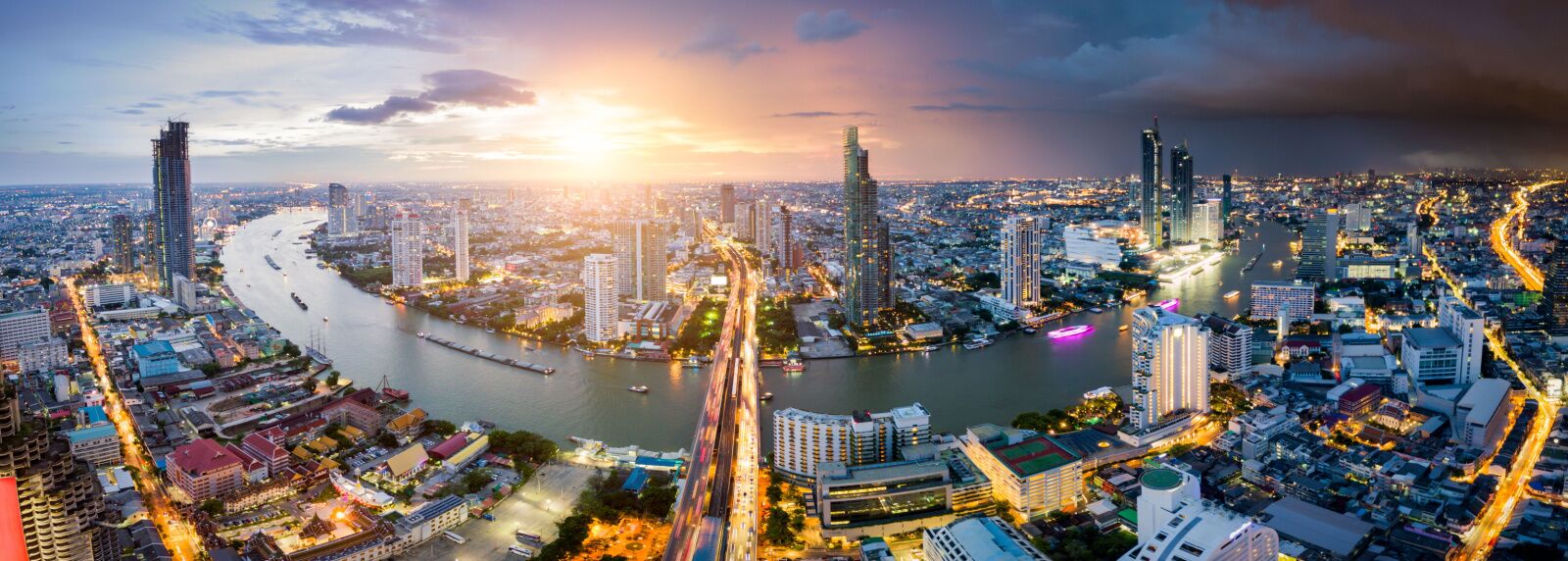
Photo: Travel Man /Shutterstock
Keep in mind that during most of the festivals in Thailand and Bangkok especially, prices for hotels and accommodations tend to be higher than usual. Make sure to check the availability and consider the location of the hotel in relation to the main venues of the festival to find the right balance of cost and location.
We hope you love the spaces and stays we recommend! Just so you know, Matador may collect a small commission from the links on this page if you decide to book a stay. Listed prices are accurate as of the time of publication.
Vic 3 Bangkok: nice rooms at a great price
Vic3 Bangkok offers very affordable rooms in a part of the city called the Phaya Thai district/ It’s a diverse area with plenty of good restaurants and bars within walking distance. The hotel itself is within walking distance to the Sanam Pao Skytrain Station, so getting to most areas of the city will be pretty easy. Rooms are quite inexpensive with a starting rate around $40, and many traveler reviews mention this as being one of the best hotel deals in Bangkok. And the outdoor pool certainly comes in handy on summer afternoons.
Hotel Indigo Bangkok: close to festivals and public transportation
Located in a business area of Bangkok, Hotel Indigo Bangkok features a rooftop infinity pool with stunning skyline views and is close to Lumphini Park, where a lot of festivals take place. And with the BTS station only a block away, anywhere you want to go in Bangkok is at your feet. It’s equal parts hip and glam, and rooms start around $150 a night.
The Continent Hotel Bangkok: hip digs in a central locale
If you’re looking for a little bit of luxury and a place to recharge after partaking in some of the festival activities, The Continent Hotel Bangkok could be the place. Reviewers love the outdoor pool and on-site restaurant (with a unique blend of Asian and Italian fusion), and no one would blame you if you started every evening with a cocktail on the rooftop bar. It’s in the very center of the city and is near both a Subway and Skyline station so you can get wherever you want to go in a jiff. Rooms start at $135 a night.
Amdaeng Bangkok Riverside Hotel: watch festival boats on the river
View this post on Instagram
A post shared by AMDAENG Bangkok riversidehotel (@amdaeng_bangkok_riversidehotel)
If you’re going to be in town for the Loy Krathong Festival, you won’t regret staying in a hotel overlooking the river where you can watch the boats float by while you have your morning coffee or tea. Rooms at the Amdaeng Bangkok Riverside Hotel have balconies overlooking the Chao Phraya River (as does the hotel roof), and the rooms are moody, romantic, and unique. One Booking.com reviewer described the rooms as “eccentric but gorgeous.” Rooms start around $140.